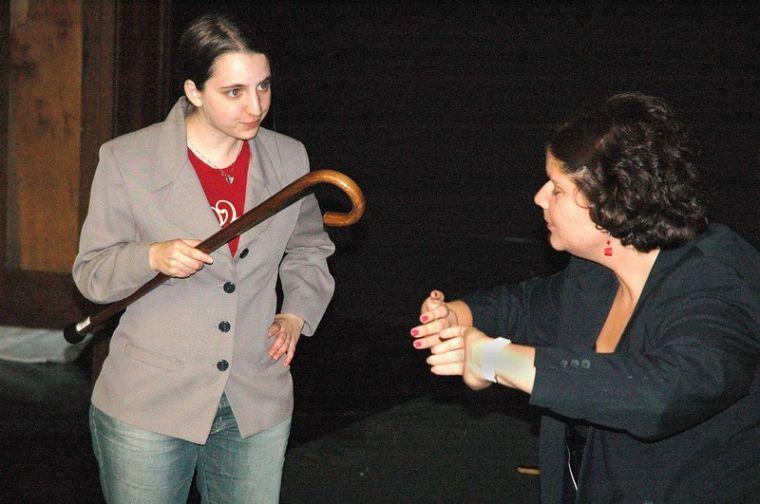In 1914, August Sander photographed three young men walking on a country road. The photograph inspired Richard Powers to write his 1985 novel, “Three Farmers on Their Way to a Dance.” Decades later, the three young men have inspired another work. Gretchen Stein, a communication studies doctoral candidate, has adapted the novel into a script and will direct the play.
Stein makes her University directing debut with “Three Farmers on Their Way to a Dance” in the HopKins Black Box Theatre in 137 Coates Hall from April 20 to 24.
The University is one of the few performance studies programs in the nation that gives the opportunity to both study theory and perform it on stage, Stein said.
“The black box is a classroom, also,” Stein said. “This is a learning experience for me — learning to adapt a novel, learning to direct. Part of performance studies comes out of the interpretation of literature track, and this show is in that vein.”
Performance studies is all about experimentation, abstraction and telling the story of culture and history through performance, said Amanda Sadat, a performance studies graduate student and actor in the play.
“Gretchen allows performers the room to explore with their character,” Sadat said. “ She’s open to growth, and that fosters our whole atmosphere and philosophy of experimentation.”
Part of what performance studies students do is use their research in the form of performance, said Ben Powell, a performance studies graduate student and actor in the play.
“My own personal research is in this show, as far as what I’ve learned about photography and history,” Stein said. “I was interested in the idea that meanings don’t sit in a picture without the interaction from the viewer.”
Stein said the novel inspired her because it had many of her personal interests in the novel — photography, history and complexity theory.
The show is about memory fading with the machine age, said Chrissy Mincy, a communication studies senior and the play’s assistant director.
“With the advancement of mechanics, representations and photographs are now just keepsakes, Mincy said.
Stein will project photographs onto the stage as part of the show.
“The images become a little faded out,” Stein said. “It connects [with] the way memory works, that these images in our minds are partial and changing.”
The show is “visually accessible” and interesting to watch, with something for everyone — history, romance and fighting, said Wendy Armington, a performance studies graduate student and actor in the play.
“You have to be willing to think,” said Rebecca Walker, a communication studies doctoral candidate and actor in the play. “It’s not the kind of show you can just sit and be entertained.”
Because black box theater is experimental, black box first-timers can be confused at their first show, but this particular performance may be easier to understand, Sadat said.
“There’s a story line, so as an audience member, you’ll leave fulfilled, not like, ‘what the hell was that?’” Sadat said.
This may be the first and only time for some students to see a black box show, Sadat said.
“I would encourage anyone who’s never been to a black box show to come,” Sadat said. “It lets you be exposed to culture you otherwise wouldn’t.”
Armington said the play is not only important culturally, it is also fun.
Donations of $5 are suggested, but not required, Stein said.
“Donations pay for props and things like that, but there’s no profit and no one gets paid or anything, we don’t even get course credit,” Stein said. “We don’t get paid to this, it’s strictly because we love it.”
Black box performance gives ‘learning experience’
April 18, 2005
Black box performance gives ‘learning experience’





